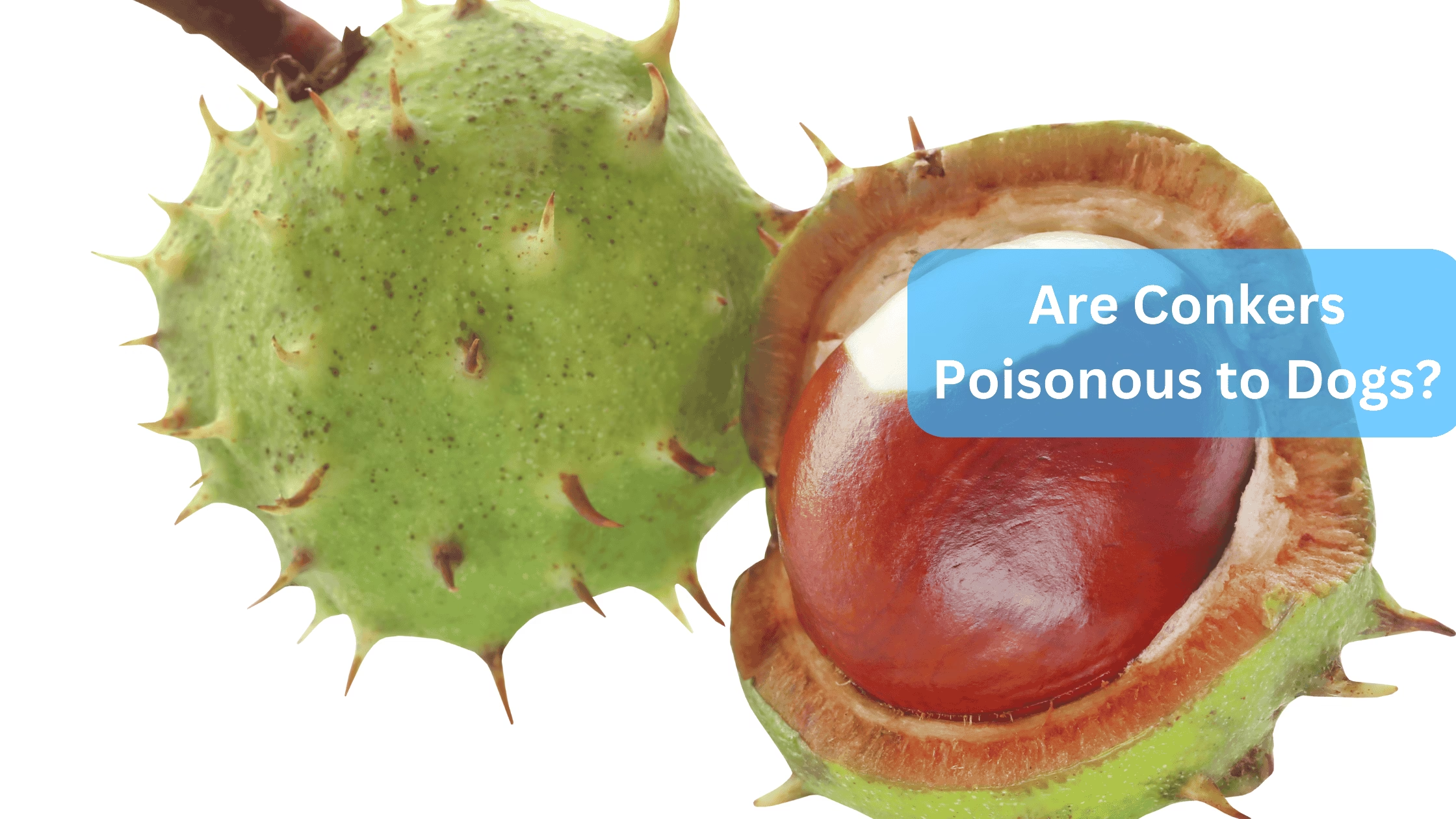Are Conkers Poisonous to Dogs? As autumn blankets the landscape in shades of orange and gold, conkers—those shiny, brown seeds from the horse chestnut tree—become a familiar sight.
While they may be a nostalgic part of childhood games, it’s crucial for dog owners to understand the risks these seemingly harmless nuts pose to our furry friends.
What Are Conkers?
Conkers are the seeds of the horse chestnut tree (Aesculus hippocastanum), which is native to the Balkans but has become widespread across Europe and North America.
These glossy brown seeds are encased in a spiky green shell and typically fall from trees in late summer and early autumn.
While children may enjoy collecting them for games, dog owners need to be aware of their potential dangers.
Are Conkers Poisonous to Dogs?
Yes, conkers are indeed poisonous to dogs. The primary toxic substance found in conkers is aesculin, which can cause various health issues when ingested. Aesculin affects dogs by disrupting their digestive systems and can lead to more severe complications if not addressed promptly.
In comparison to other common dog poisons, such as acorns, conkers are particularly concerning due to their widespread availability in parks and backyards during fall. It’s essential for dog owners to remain vigilant during this season.
Symptoms of Conker Poisoning in Dogs
If your dog happens to munch on a conker, symptoms can vary depending on the amount consumed.
Mild Symptoms:
- Vomiting
- Diarrhea
- Drooling
- Lethargy
Severe Symptoms:
- Abdominal pain
- Tremors and wobbliness
- Shock and respiratory issues
- Potential for fatality in extreme cases
If you notice any of these signs after your dog has been around conkers, it’s time to take action!
What Do I Do If My Dog Eats a Conker?
First things first: don’t panic! Here’s what you should do:
- Contact a veterinarian immediately. They can provide guidance based on your dog’s size and health history.
- Note the time and quantity of conkers consumed. This information will help the vet assess the situation more accurately.
- Monitor for symptoms closely. Keep an eye on your pup for any changes in behavior or health.
How Much Conker Is Bad for a Dog?
The toxicity of conkers can vary significantly based on several factors, including the amount consumed and your dog’s size.
Generally, even a small amount can cause mild symptoms, while larger quantities may lead to severe reactions. Smaller dogs are particularly at risk due to their size.
Aesculin Poisoning in Dogs
Aesculin poisoning occurs when dogs ingest parts of the horse chestnut tree or its seeds. This toxin affects the gastrointestinal tract and can lead to serious health issues if not treated promptly.
Symptoms may include vomiting, diarrhea, and abdominal discomfort, which can escalate quickly without intervention.
Treatment Options for Conker Poisoning
If your dog has ingested conkers, treatment options may include:
- Inducing vomiting: Your vet may recommend this if ingestion was recent.
- Intravenous fluids: To combat dehydration caused by vomiting or diarrhea.
- Possible surgical intervention: In cases where there is a blockage in the digestive tract.
Prompt veterinary care is crucial for a positive outcome.
Preventative Measures for Dog Owners
To keep your furry friend safe from conkers this autumn, consider these tips:
- Keep a close watch during walks in areas where conkers are prevalent.
- Use distractions like toys or treats to divert their attention away from fallen conkers.
- Educate others about the dangers of conkers so they can help keep an eye out too.
FAQs Section
Can all dogs be affected by conkers?
Yes, all dogs can be affected by conkers; however, individual reactions may vary based on size and health.
What are alternative safe outdoor activities for dogs during autumn?
Consider going for nature walks where there are fewer conkers or engaging in games like fetch with safe toys.
How can I identify other plants that may be harmful to dogs?
Familiarize yourself with local flora and consult your veterinarian or reliable resources for guidance on toxic plants.
Also Read: Are lilies poisonous to dogs? A Blooming Concern
Also Read: Are Slugs Poisonous to Dogs? A Friendly Guide.
Conclusion
As you enjoy the beauty of autumn with your four-legged companion, remember that vigilance is key when it comes to keeping them safe from potential hazards like conkers. If you suspect your dog has ingested any part of a horse chestnut tree, don’t hesitate—seek veterinary care immediately!
Sources:
- https://en.wikipedia.org/wiki/Conkers#Safety_concerns
- https://www.medicalnewstoday.com/articles/horse-chestnut







